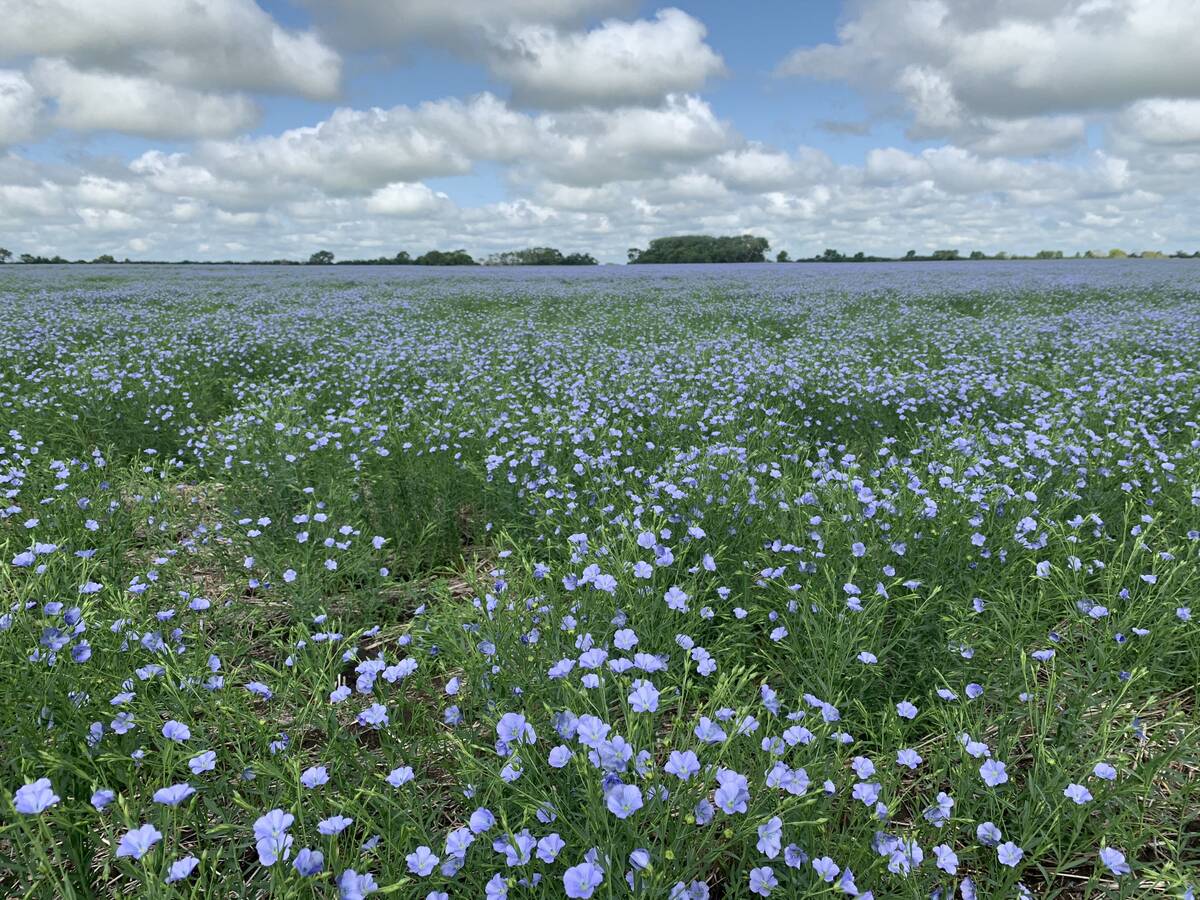What kind of a maniac crosses deadly desert wastes for fun, skis down avalanche-prone slopes for kicks and takes his young children hiking through the Himalaya and Caucasus mountains for holidays?
Maybe it’s the same sort of person who builds a multimillion-dollar business that is dependent on weather, tormented by volatile commodity markets and relies on foreign markets and marketing systems that can suddenly shut down for months or years.
In other words, adventurer Bruce Kirkby seems a lot like a farmer, at least in terms of risk tolerance.
Read Also

Flax sector sees omega-3 opportunity
SASKATOON — A global shortage of omega-3 oils could be an opportunity for the flax sector, says an industry official….
He didn’t talk much about farming when he spoke at the Canola Council of Canada’s annual convention in March, and nobody wanted that, because, for gosh sakes, he’s a death-defying adventurer.
But pretty much everything the mountaineer, kayaker and skier said about operating safely in an environment of extreme, deadly risks applies more to farming than anything else outside extreme adventuring.
“Our life is constantly about risk,” he said as he discussed “managing risk in uncertain and evolving environments.”
Here are some of the risk management factors that he wrestles with when approaching a crazy adventure, with some farm examples that come to my mind in response:
- Exotic risk factor: This is when a dramatic but low-probability risk consumes all of our attention when we should instead be paying attention to numerous smaller risks that are actually likely to affect us. Think of obsessing over the spread of UG99 stem rust when you should be tuning up your tractor for spring.
- Ignoring slow change and overreacting to abrupt change: Think of a farmer with a heavy debt load who focuses on short-term complications like nearby basis levels, which have much less chance of causing a crisis. Then, when something dramatic happens, they panic and overreact.
- Underestimating voluntarily assumed risks: You choose to farm, which is a super-risky business endeavor, so you think, “heck, I’m OK with all this risk, I’m used to it. Been doing it forever.” Until you have a wreck and it’s all over.
- Categorizing near-misses as successes: Many farmers have survived multiple brushes with business death, whether it be crop disasters, market closures or price collapses. Some of them learn lessons and try to minimize those risks for the inevitable next time, while other guys think, “well, we always manage to pull through somehow,” and change nothing.
- Forgetting about human error: Are you getting worked up about some anti-agriculture post you just saw on Facebook? Don’t let that distract you from putting the tractor into Park when you’re about to go underneath to fix something. Facebook isn’t going to kill you. Your tractor might.
- Risk creep: Everything farmers do is risky, so it becomes easy to add multiple risks on top of each other and not notice how your overall risk exposure has in-creased exponentially.
- Expert halo: “Hey, those smart farmers down the road with the high-tech new equipment just seeded their fields two weeks early. They must know something. I’m going do the same thing.”
- Multiple small errors causing major disasters: “How did we end up forward pricing none of this year’s crop?”
- Bozos: Kirkby describes naysayers who tell you that you can’t do something as “bozos.” With adequate risk management, high-risk endeavors can be undertaken with minimal risk. However, skeptics will challenge you and try to scare you off, even when you’ve thought out everything and taken reasonable risk reduction strategies. Don’t listen to them.
“There’s this excess of bozosity these days,” Kirkby said.















